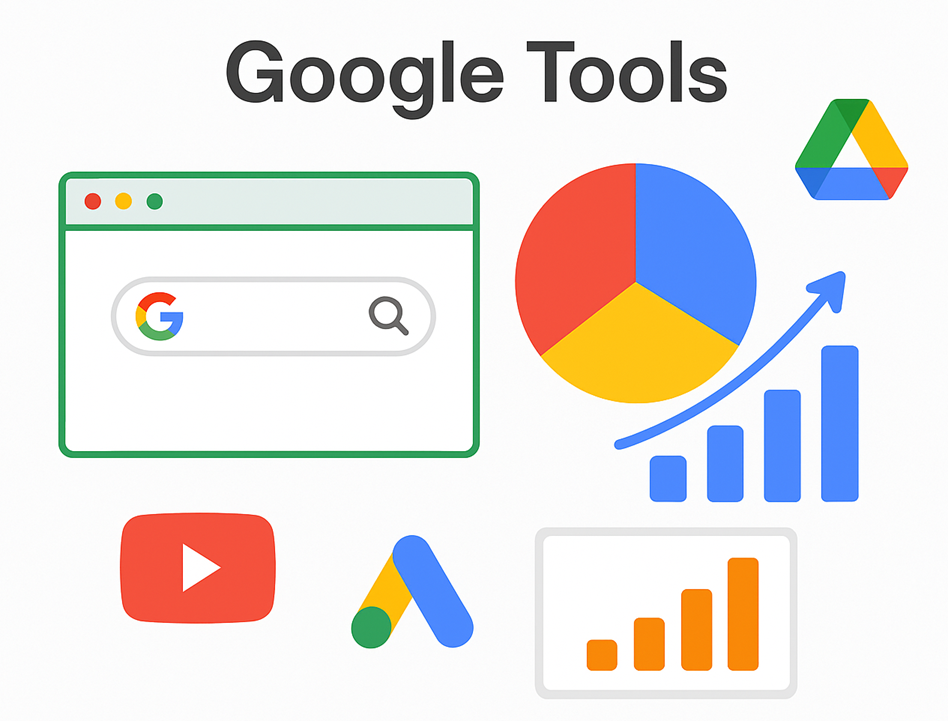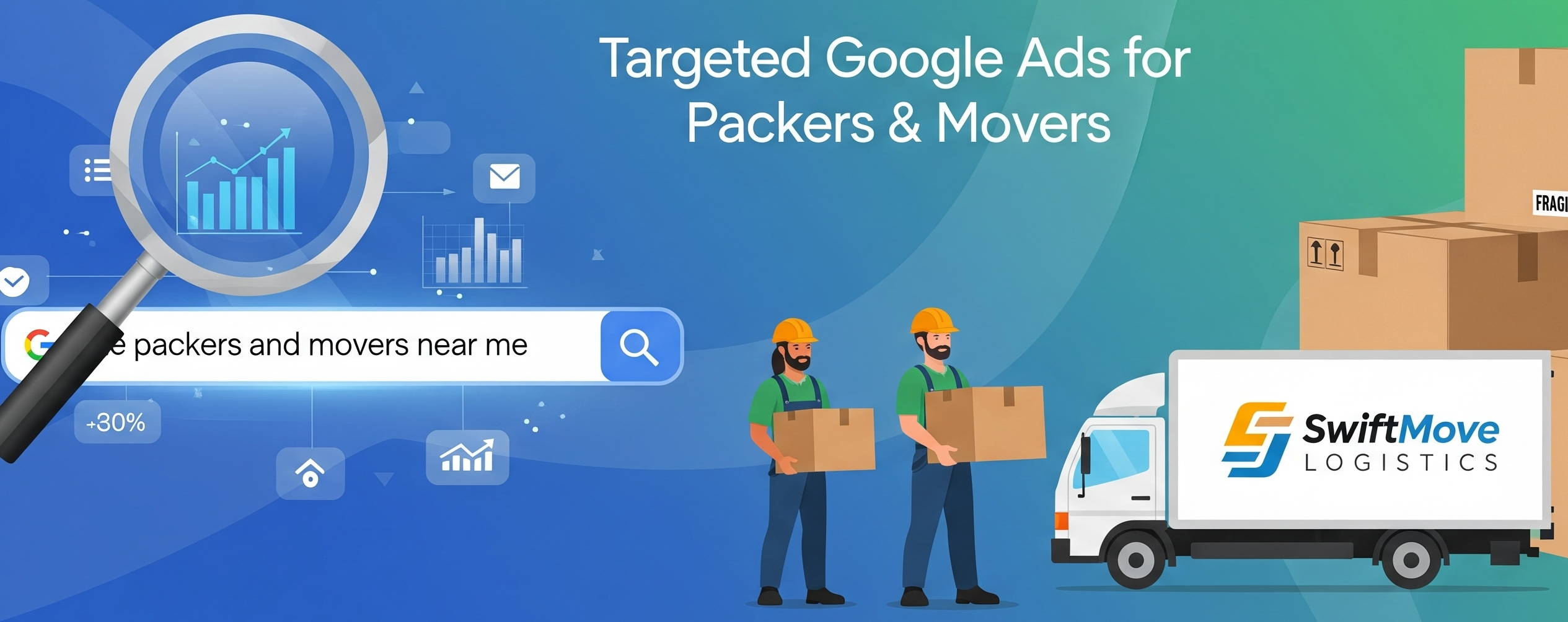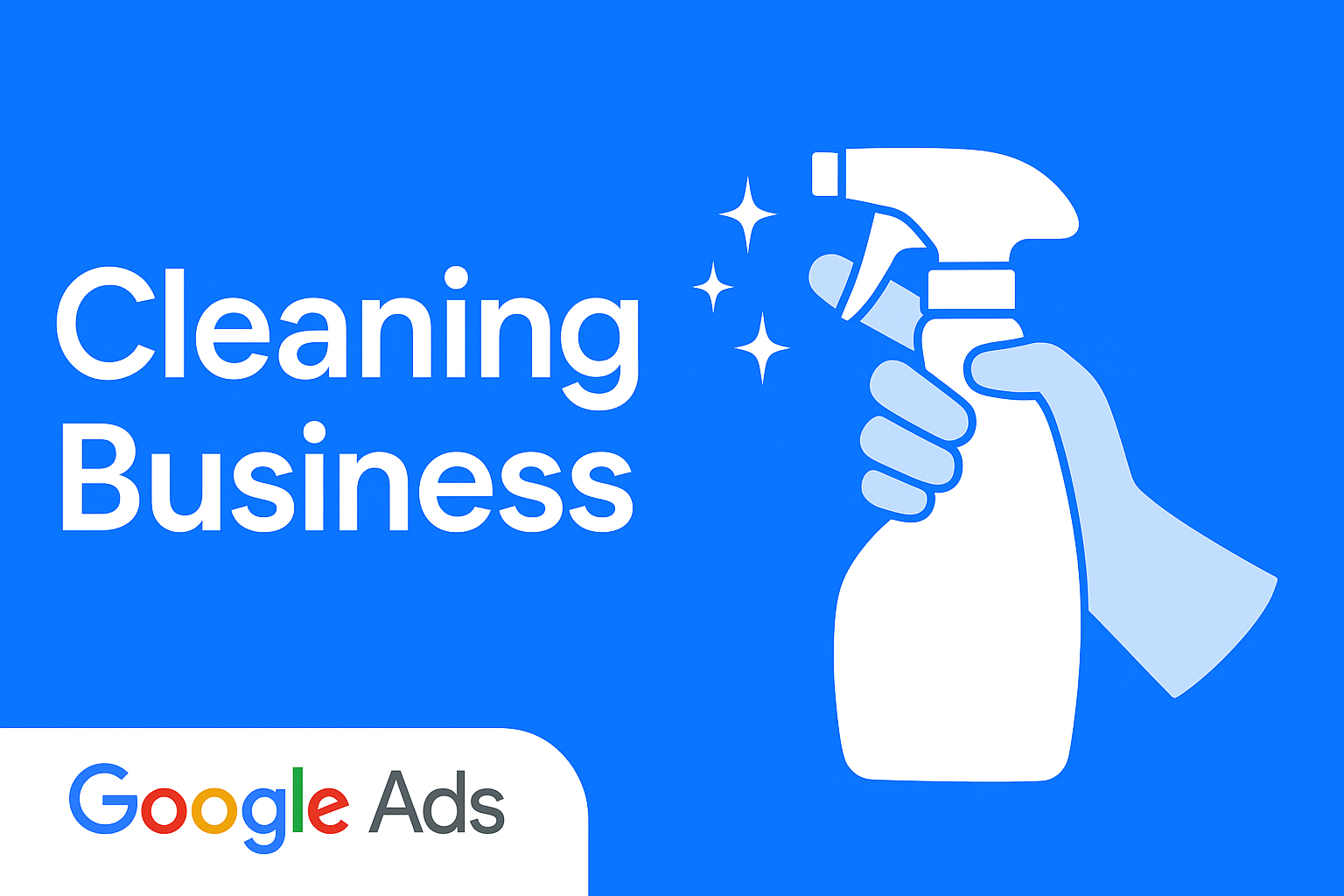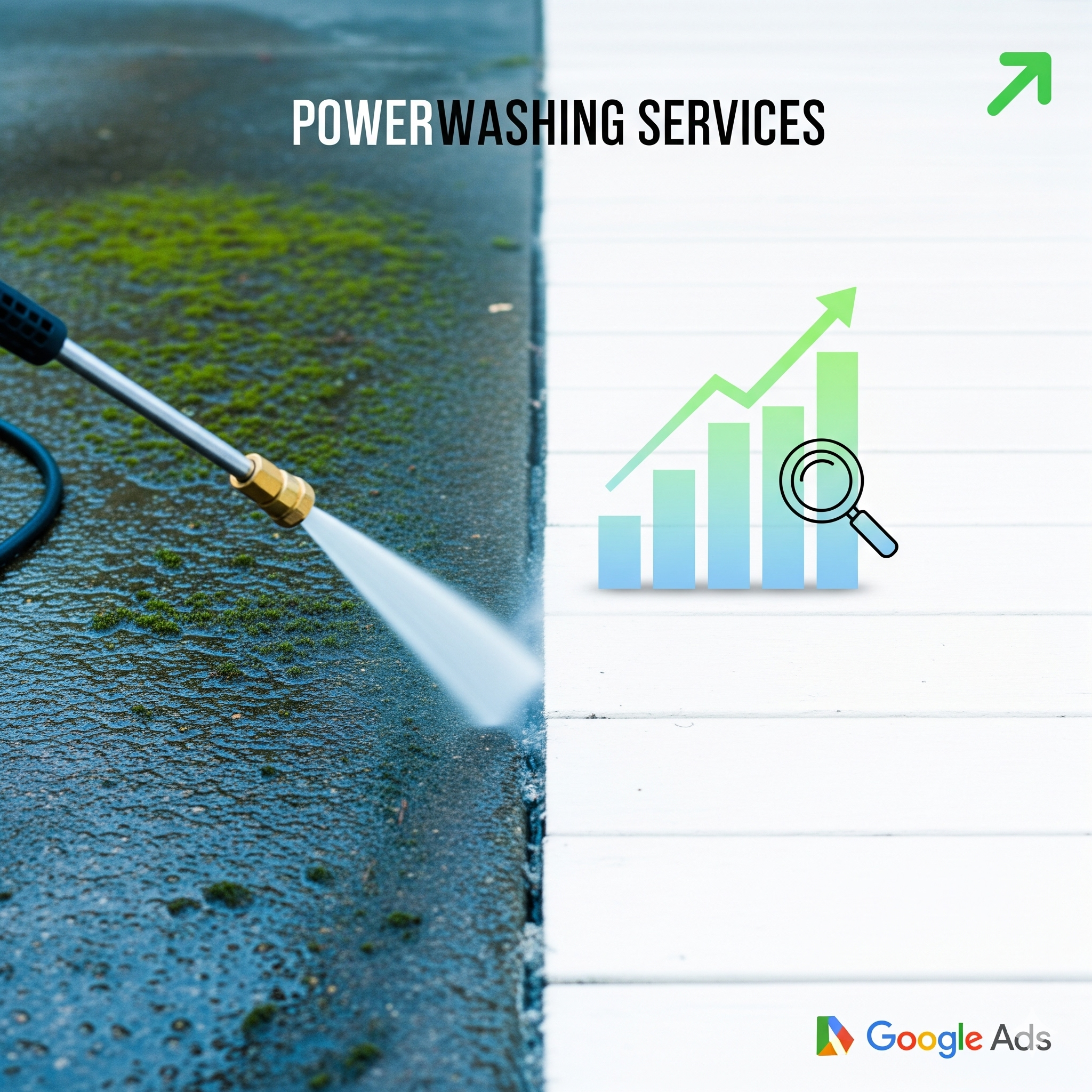The Ultimate Guide to Google Tools: Boost Productivity, Marketing, and Business Growth
When it comes to running a business, marketing online, or even managing daily productivity, Google tools stand out as some of the most powerful and accessible solutions available. Whether you’re looking to analyze website performance, launch ads, manage documents, or explore AI-driven solutions, the Google ecosystem offers a comprehensive set of tools.
In this detailed guide, we’ll cover the top Google tools every professional, marketer, and entrepreneur should use, along with their features, pricing, pros, and cons.

In today’s digital-first world, businesses can’t thrive without the right set of online tools. Whether you want to boost visibility, analyze customer behavior, or run high-performing ad campaigns, Google tools remain the backbone of online marketing and business growth. From Google Gemini, the AI-powered assistant, to Google Ads, the ultimate paid advertising platform, Google has built a powerful ecosystem that covers every aspect of digital presence.
In this detailed guide, we will explore the top 11 Google tools every business must use in 2026, their features, and the pros & cons of each. By the end, you’ll know exactly which tools to prioritize for your business success.
1. Google Gemini (AI Assistant): Google Tools
What it is:
Google Gemini is Google’s next-generation AI model (successor to Bard), designed to compete with OpenAI’s GPT and other large language models. It helps with content generation, coding, data analysis, and task automation.
Key Features:
- Natural language understanding & generation
- Code completion and debugging
- Content creation (blogs, emails, reports)
- Data analysis and research support
Pros:
- Powerful AI capabilities
- Seamless integration with Google products
- Multilingual support
Cons:
- Still evolving; not fully stable
- May have limited features in free versions
Pricing:
- Expected to be included with Google One or Workspace subscriptions in the future.
2. Google Ads
What it is:
Google Ads is the advertising platform that helps businesses reach potential customers through search, display, YouTube, and shopping ads.
Key Features:
- Search ads targeting keywords
- Display & YouTube ads for brand visibility
- Conversion tracking & analytics
- Pay-per-click (PPC) model
Pros:
- High-intent audience targeting
- Flexible budgeting
- Wide reach across Google’s network
Cons:
- Competitive niches can be expensive
- Requires expertise for optimization
Pricing:
- No fixed subscription fee, pay-per-click model
- Recommended starting budget: $10–$50/day, depending on niche
3. Google My Business (GMB / Google Business Profile)
What it is:
GMB allows local businesses to appear on Google Maps and local search results, making it easier for nearby customers to find you.
Key Features:
- Business listing with reviews
- Photos, opening hours, contact info
- Local SEO boost
Pros:
- Free tool for local visibility
- Builds trust with reviews
- Drives foot traffic & phone calls
Cons:
- Needs active management of reviews
- Fake reviews can be an issue
Pricing:
- Free
4. Google Analytics (GA4): Google Tools
What it is:
Google Analytics tracks website traffic, user behavior, and conversions, helping you understand how visitors interact with your site.
Key Features:
- Real-time traffic monitoring
- Audience insights (location, devices, demographics)
- Conversion tracking
Pros:
- Free & powerful
- Deep insights into user behavior
- Integrates with Google Ads & GSC
Cons:
- Learning curve with GA4
- Data sampling at high traffic levels
Pricing:
- Free
5. Google Tag Manager (GTM)
What it is:
A free tool that allows you to manage tracking codes and analytics scripts without editing your website’s code.
Key Features:
- Tag management without coding
- Triggers for events (clicks, forms, video views)
- Integration with Analytics & Ads
Pros:
- Saves developer time
- Easy deployment of marketing tags
- Centralized control
Cons:
- Requires some technical knowledge
- Misconfiguration can lead to data errors
Pricing:
- Free
6. Google Search Console (GSC)
What it is:
GSC helps you monitor and troubleshoot your site’s presence in Google Search results.
Key Features:
- Indexing & crawling reports
- Keyword ranking data
- Core Web Vitals & performance insights
Pros:
- Free SEO insights
- Alerts for site errors
- Helps optimize for better rankings
Cons:
- Historical data limitations
- Requires SEO knowledge to interpret
Pricing:
- Free
7. Google Keyword Planner
What it is:
A keyword research tool inside Google Ads that helps discover search terms and estimate competition.
Key Features:
- Search volume data
- Keyword competition & CPC
- Local & global targeting
Pros:
- Accurate keyword insights
- Directly linked with the Ads campaigns
Cons:
- Limited data without running ads
- Focused more on PPC than SEO
Pricing:
- Free (requires Google Ads account)
8. Google Trends
What it is:
Google Trends helps you see what topics and keywords are trending over time.
Key Features:
- Search interest by region/time
- Keyword comparisons
- Seasonal trend analysis
Pros:
- Free market research
- Great for content ideas
- Visual, easy-to-read graphs
Cons:
- Limited data for low-volume keywords
- Not as detailed as paid SEO tools
Pricing:
- Free
9. Google Sites: Google Tools
What it is:
A free website builder from Google, useful for simple sites, internal portals, or documentation.
Key Features:
- Drag-and-drop builder
- Integration with Drive, Docs, Sheets
- Mobile responsive
Pros:
- Free & easy to use
- No coding needed
Cons:
- Limited customization & SEO options
- Not ideal for professional websites
Pricing:
- Free
10. Google Drive
What it is:
Google Drive is a cloud storage service that lets you store and share files.
Key Features:
- 15GB free storage
- Integration with Docs, Sheets, Slides
- File sharing & collaboration
Pros:
- Easy to access anywhere
- Real-time collaboration
- Secure with 2FA
Cons:
- Free storage is limited
- Large storage requires payment
Pricing:
- 15GB free
- Google One plans: Starting at $1.99/month for 100GB
11. Google Workspace (formerly G Suite)
What it is:
Workspace is Google’s business productivity suite, including Gmail, Meet, Drive, Docs, Sheets, and more.
Key Features:
- Custom business emails (you@yourdomain.com)
- Video conferencing with Meet
- Team collaboration tools
Pros:
- Professional email & apps
- Seamless collaboration
- Scalable for teams
Cons:
- Paid only for custom domains
- Needs good internet for cloud usage
Pricing (as of 2025):
- Business Starter: $6/user/month
- Business Standard: $12/user/month
- Business Plus: $18/user/month
Final Thoughts: Google Tools
From AI-powered Google Gemini to Google Ads, Workspace, Drive, and Analytics, the Google tools ecosystem is designed to support every aspect of running and growing a business. The best part? Many of them are free or affordable, making them accessible for startups and established businesses alike.
The digital marketing landscape in 2026 is competitive, but with the right Google tools, businesses can gain a powerful advantage. From AI innovation in Google Gemini to data-driven insights in Google Analytics and ad performance with Google Ads, each tool has a unique role in your strategy.
✅ If you’re just starting, focus on Google My Business, Search Console, and Analytics.
✅ If you want to scale, add Google Ads, Keyword Planner, and Tag Manager.
✅ For advanced use, explore Google Gemini, Trends, and Sites.
By integrating these Google tools, you’ll create a holistic strategy for visibility, performance, and growth.
👉 If you’re a small business, start with Google My Business, Search Console, Analytics, Drive, and Workspace.
👉 If you’re scaling, add Google Ads, Tag Manager, and Keyword Planner.
👉 For innovation, experiment with Google Gemini and Trends.
Together, these Google tools empower you to stay ahead of the competition.
Read This Also: Top 7 Website Design Software & Website Builders in 2026 (With Pricing & Pros/Cons)
By using these tools strategically, you can improve marketing performance, streamline productivity, and unlock new growth opportunities.










Leave a Reply